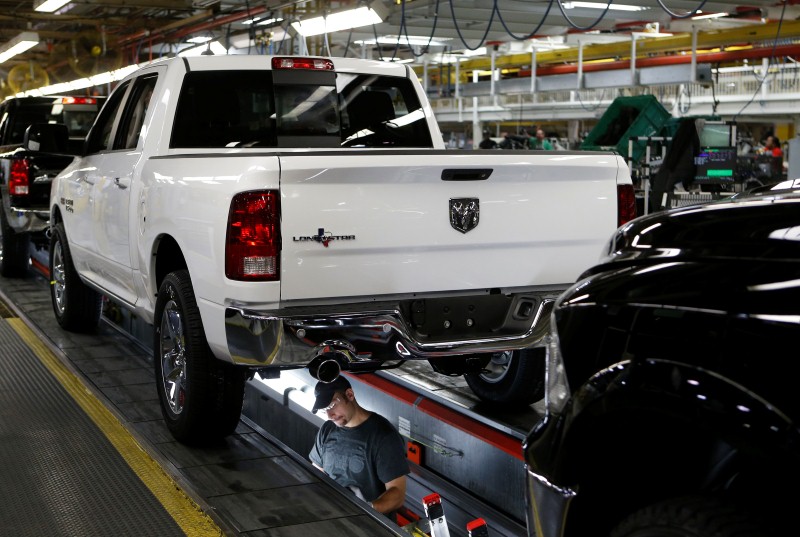By Geoffrey Smith
Investing.com -- The U.S. manufacturing sector slowed again in June as demand weakened against a backdrop of high prices and continued constraints on production, the Institute for Supply Management said on Friday.
The ISM's purchasing managers index fell to 53.0, its lowest in two years, and a sharper drop than analysts had expected. It nonetheless remained clearly above the 50 level that typically separates growth from contraction. It's been in expansion territory for over two years now.
"The U.S. manufacturing sector continues to be powered — though less so in June — by demand while held back by supply chain constraints," ISM's Tim Fiore said in a statement.
He noted that respondents reported a drop in new orders and continued unease about high input prices.
"Orders usually lead the other 80% of the index, so we have to expect a further decline in the headline index in July," said Ian Shepherdson, chief economist with Pantheon Macroeconomics, in a note to clients. He added that the index is unlikely to fall much further beyond July, given that China's manufacturing sector - which tends to lead developments in the U.S. one - has already recovered from its lockdown-driven wobble in the spring.
Concerns about prices appeared to ease for the third straight month, however, with the prices paid index falling more than expected to 78.5. While that's still high by historical comparison, it's comfortably below the high of 92.1 registered a year ago.
U.S. markets took the survey as a fresh excuse to price in a recession, driving bond prices up and yields down. By 10:45 AM ET (1445 GMT), the benchmark 10-Year note yield was down 14 basis points at 2.84%, its lowest in over a month. The 2-Year yield, which is more sensitive to expectations for short-term interest rates set by the Federal Reserve, also fell 14 basis points to 2.79%.
The moves suggest a rapid repricing of Fed expectations, only a couple of days after Fed Chair Jerome Powell reiterated that he doesn't expect a recession. Powell has, however, acknowledged that the risks of a recession are rising due to the sustained high level of energy prices, which has in turn been caused by Russia's war in Ukraine and years of under-investment in the sector that has left it unprepared for the post-pandemic rebound in demand.
